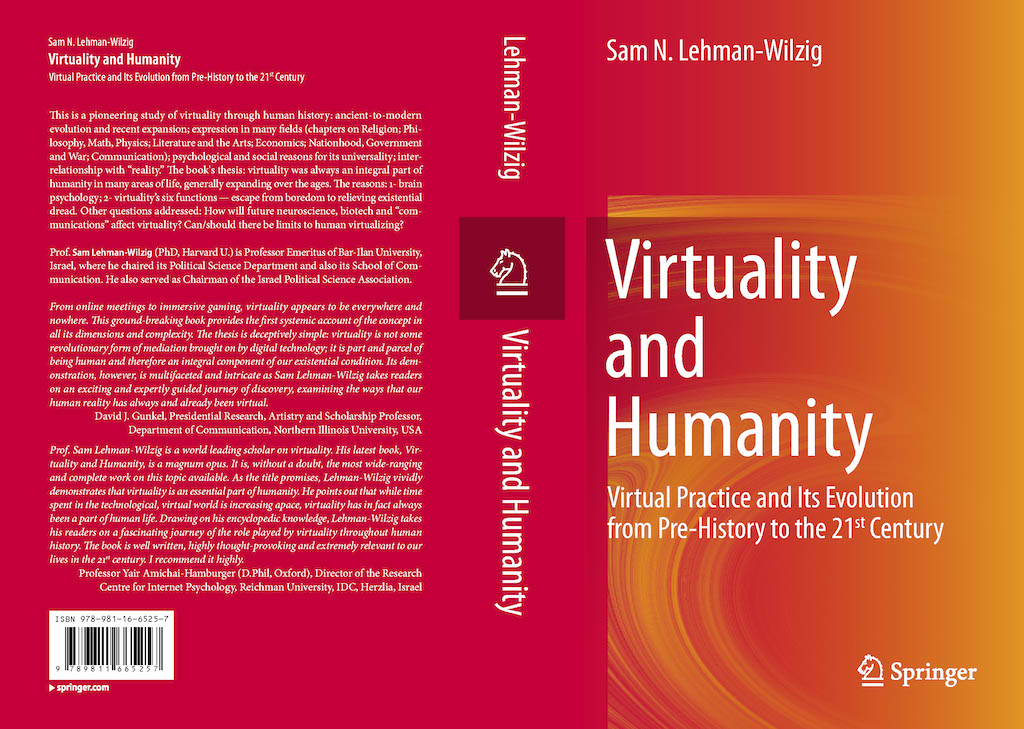Prof. Sam Lehman-Wilzig – Positive Palestinian Progress (within Israel)
Israeli news reports these past few months have focused on the political changes occurring among Israeli-Arabs (most of whom now self-identify ethnically as Palestinian-Israelis): the RAAM party joining the new government, and most recently the refusal of several citizens from this sector to help the escaped terrorist convicts. However, the real revolution is happening far from the media’s eyes but right in Israeli society’s face.
In short, they have entered the field of Israeli health care in droves. So much in fact, that in a few areas, Palestinian-Israelis now constitute more than half of all new health care licensees, although their proportion within the overall Israeli population is 20%. For anyone familiar with the first fifty years of Israeli society and economy, herewith some truly mind-boggling 2020 statistics regarding Palestinian-Israeli entry into high level health positions: 46% of all new licensed doctors; 57% of all entering pharmacists; 50% of all new nurses (many of them male); and 53% of all newly licensed dentists.
The interesting – and somewhat problematic – aspect of all this is that the vast majority are not trained in Israeli medical or other healthcare schools but rather overseas. Competition for the very limited space in such Israeli medical schools is extremely stiff (it’s probably easier to get into Harvard), a result of the Jewish “my son the doctor” syndrome (as an aside, it’s now more my daughter the doctor) – an aspiration that has osmotically filtered into the Palestinian-Israeli sector as well. This, most who cannot get into an Israeli medical, pharmacy etc. school go overseas, despite the very heavy cost of such a pedagogical adventure. (A further aside: the same is true for many Jewish Israelis who can’t get into any Israeli medical school.)
The real problem, though, lies in the low quality of some overseas medical schools – especially in Eastern Europe. As a result, the Health Ministry recently announced a change of policy: only the graduates of those foreign medical schools that it vets as of appropriate quality will now be acceptable for entry into Israel’s health system (most Eastern European schools do not pass muster). This is not driven by any discrimination against the Palestinian-Israelisector – after all, as just noted, many Jewish Israelis study there as well – but rather by concern for maintaining the high level of Israeli health care.
This Palestinian-Israeli overall health care foray is not the only sign of the changing times regarding the sector’s relationship with general Israeli society. Another “wave” is housing: younger, mostly highly educated and newly married Arabs have begun to leave their local Palestinian-Israeli cities, towns, and villages, and are moving into (mostly) “mixed” Israeli cities: Jaffa (officially part of municipal Tel-Aviv), Haifa, Acre, and the like.
There are two main reasons for this. First, until very recently, Israeli planning authorities have not given zoning permission for housing expansion in Arab cities/towns, so that the young married could not build near their families. Second, many of these well-educated, young Israeli- Arabs, themselves wish to leave the ultra-conservative, “stultifying” environment of their traditional hamula (extended family) lifestyle. Having studied in Israeli secular universities (even “quasi-religious” Bar-Ilan University’s student body is approximately 60% secular) and socializing with Israeli Jews, thereby undergoing socialization into the norms of mainstream of Israeli society, their “head” is elsewhere from their local upbringing.
To be sure, the result is beneficial but somewhat problematic from a social standpoint. Beneficial, because as Israeli Jews meet their new neighbors in day-to-day life, greater understanding and mutual tolerance tends to be the outcome. Problematic, because there are still significant numbers of Israelis who prefer residential self-segregation, fearing intermarriage (still extremely low in Israel) and other forms of assimilating Arab culture into general Israeli society – already occurring in the fields of language and cuisine.
Of course, all this has political consequences as well. It explains why RAAM (an Israeli-Arab, religiously Moslem party!) was willing to join a Zionist government: a significant part of the Palestinian-Israeli sector – while still supporting the Palestinian national movement in principle – is tired of having no socio-economic influence within their own country Israel. Thus, despite Israel’s continual far-right-wing claims that Palestinian-Israelis constitute an irredentist “Fifth Column,” it didn’t surprise many Jewish Israelis that the recently escaped, convicted Palestinian terrorists received no help whatsoever from Palestinian-Israelis, even when asked to do so face-to-face. Quite the opposite: a few of the latter even called Israel’s security forces with suspicions about these “foreign-sounding” Arabs.
The bottom line: real, subterranean, socially tectonic forces are at play in Israeli society at large. What that means for “Zionism” as originally defined and intended will play out in the years to come, but there is no gainsaying that Israeli society is currently witness to a real social revolution regarding the internal relationship between its two main national sectors.
To Pre-Order: Virtuality and Humanity by Prof. Sam Lehman-Wilzig and/or his other books follow this link to Amazon









